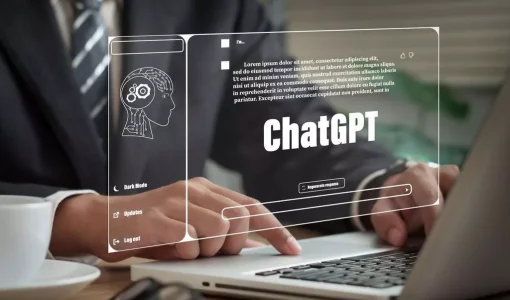It is imperative to do your research and define your goals before you build a healthcare chatbot. Being mindful with the planning and setting expectations will pose a beneficial factor for implementing this software. metadialog.com Some healthcare chatbots are even designed to send reminders and let people know when they have an appointment coming up. Moreover, these reminders can also communicate the specific actions they must take.
Are you part robot? A linguistic anthropologist explains how humans … – CT Insider
Are you part robot? A linguistic anthropologist explains how humans ….
Posted: Mon, 12 Jun 2023 13:03:49 GMT [source]
According to Business Insider Intelligence, up to 73% of administrative tasks (e.g., pre-visit data collection) could be automated with AI. With the recent tech advancements, AI-based solutions proved to be effective for also for disease management and diagnostics. ScienceSoft’s healthcare IT experts narrowed the list down to 5 prevalent use cases.
Benefits that Chatbots Are Bringing To The US Healthcare Industry
By lowering wait times, enhancing communication, and providing around-the-clock access to healthcare information, conversational AI in healthcare can greatly improve the patient experience. Patients don’t have to wait for a healthcare professional’s availability to get answers to their inquiries and concerns. Max Healthcare, one of the largest hospital networks in North India, used this type of patient-focused automation to alleviate the claims and billing process. With the help of RPA-powered AI chatbots, Max Healthcare was able to fully automate the manual claims process.
The app asks a number of questions based on CDC guidelines and, depending on the answers, gives an option to contact a doctor or participate in a virtual video visit. Within just a few weeks, the chatbot had created more than 40,000 sessions, with more than a million messages sent between people and the chatbot, the Wall Street Journal reported. Research on the use of chatbots in public health service provision is at an early stage. Although preliminary results do indicate positive effects in a number of application domains, reported findings are for the most part mixed.
Future of Chatbots in Healthcare
That’s why hybrid chatbots – combining artificial intelligence and human intellect – can achieve better results than standalone AI powered solutions. Buoy Health was built by a team of doctors and AI developers through the Harvard Innovation Laboratory. Trained on clinical data from more than 18,000 medical articles and journals, Buoy’s chatbot for medical diagnosis provides users with their likely diagnoses and accurate answers to their health questions. There are three primary use cases for the use of chatbot technology in healthcare – informative, conversational, and prescriptive. These chatbots vary in their conversational style, the depth of communication, and the type of solutions they provide. Furthermore, hospitals and private clinics use medical chatbots to triage and clerk patients even before they come into the consulting room.
The reception area of almost all the hospitals keeps ringing with phone calls. Thus, artificial intelligence in the medical field has started answering questions through medical chatbots. In the future, chatbots in healthcare will be able to enhance their symptoms detection rate more accurately through collective patient data. This emphasizes that the healthcare sector will be going to witness the massive impact of AI-enabled operations. Chatbots in healthcare can mimic human-like responses so that you can automate many daily activities of your nurses or doctors.
How Capacity Can Transform Patient Support
It also has a wide array of information concerning medical service providers, including pharmacies, doctor’s offices, and even mental health apps. Today, the Intellectsoft experts uncover what is medical chatbot technology and its potential for the healthcare industry development. At present, with the AI market rapid development, the importance of chatbots in healthcare becomes more and more obvious.

With the advent of phenotype–genotype predictions, chatbots for genetic screening would greatly benefit from image recognition. New screening biomarkers are also being discovered at a rapid speed, so continual integration and algorithm training are required. These findings align with studies that demonstrate that chatbots have the potential to improve user experience and accessibility and provide accurate data collection [66]. Rise in hospital cost savings due to use of healthcare chatbots across the globe is a compelling factor that boots the growth of the healthcare chatbots market.
Analyst Support
As natural language understanding and artificial intelligence technologies evolve, we will see the emergence of more advanced healthcare chatbot solutions. One of the most important reasons behind healthcare providers’ using chatbots is that they help in acquiring patient feedback. Getting proper feedback from the users is very crucial for the improvement of healthcare services. With the help of a chatbot, any institute in the healthcare sector can know what the patients think about hospitals, treatment, doctors, and overall experience. Conversational chatbots are created for being contextual tools that provide responses as per the user’s requirements. Besides, it comes with various maturity levels that offer a similar intensity of the conversation.
Consequently, balancing these opposing aspects is essential to promote benefits and reduce harm to the health care system and society. Chatbots experience the Black
Box problem, which is similar to many computing systems programmed using ML that are trained on massive data sets to produce multiple layers of connections. Although they are capable of solving complex problems that are unimaginable by humans, these systems remain highly opaque, and the resulting solutions may be unintuitive. This means that the systems’ behavior is hard to explain by merely looking inside, and understanding exactly how they are programmed is nearly impossible. For both users and developers, transparency becomes an issue, as they are not able to fully understand the solution or intervene to predictably change the chatbot’s behavior [97].
Benefits of Chatbots in Healthcare
Based on the understanding of the user input, the bot can recommend appropriate healthcare plans. Chatbots are designed to assist patients and avoid issues that may arise during normal business hours, such as waiting on hold for a long time or scheduling appointments that don’t fit into their busy schedules. With 24/7 accessibility, patients have instant access to medical assistance whenever they need it. The cloud-based market for Healthcare Chatbots is expected to grow at the highest CAGR in the forecast period. Healthcare Chatbots are used to provide assistance and diagnosis to patients or healthcare providers via the internet.
WHO urges caution over use of generative AI in healthcare – Tech Monitor
WHO urges caution over use of generative AI in healthcare.
Posted: Tue, 16 May 2023 07:00:00 GMT [source]
Healthcare chatbots are going to stick around for a long time unless another high-end tech comes. Moreover, it also seems impossible that chatbots will replace doctors, for the time being, they can take up the role of a primary consultant to assist patients in daily life. In coming years, AI chatbots in healthcare will prevail everywhere and humans would be needing them a lot. Chatbots are becoming increasingly sophisticated and are being integrated into various aspects of healthcare, including patient care, administration, and research.
Facilitate a better patient experience with a healthcare chatbot
That sums up our module on training a conversational model for classifying intent and extracting entities using Rasa NLU. Your next step is to train your chatbot to respond to stories in a dialogue platform using Rasa core. You now have an NLU training file where you can prepare data to train your bot. Open up the NLU training file and modify the default data appropriately for your chatbot.
- A text-to-text chatbot by Divya et al [32] engages patients regarding their medical symptoms to provide a personalized diagnosis and connects the user with the appropriate physician if major diseases are detected.
- Currently one of the most popular chatbots around, Ada Health is designed to gather data on users’ symptoms as thoroughly and deeply as possible in order to offer accurate medical advice.
- A chatbot is an advanced computer program that uses Natural Language Processing (NLP) to understand and answer users’ questions.
- Chatbots can also be programmed to recognize when a patient needs assistance the most, such as in the case of an emergency or during a medical crisis when someone needs to see a doctor right away.
- In this respect, the synthesis between population-based prevention and clinical care at an individual level [15] becomes particularly relevant.
- Based on the pre-fetched inputs, the chatbots can use the knowledge to help the patients identify the ailment that is causing their symptoms.
Over time, an increasing number of patients have indicated an interest in keeping track of their health. As a result, artificial intelligence has risen to the occasion to meet this expanding need. Virtual assistants with artificial intelligence can considerably enhance the entire patient experience and treatment quality. The Jelvix team has built mobile and web applications for remote patient monitoring.
What Are the Benefits of Cloud Computing in the Healthcare Industry?
Users can also take advantage of personalized meditation recommendations as well as tools for tracking mood and emotional health. The more users interact with the chatbot, the more it refines its personalized approach to mental health. The APP Solutions is a leading healthcare technology company that creates innovative products to improve patient outcomes and streamline healthcare processes. Our talented developers and designers work hard to give our clients the most advanced, secure, and effective solutions to improve patient outcomes and streamline healthcare processes. The medical chatbot can assist as an interpreter for non-English speaking patients. The bot can then interpret during consultations and appointments, eliminating language issues.
- The ultimate goal is to assess whether chatbots positively affect and address the 3 aims of health care.
- Chatbots help the service provider to maintain patient data via conversation or last calls.
- At the global health level, chatbots have emerged as a socially responsible technology to provide equal access to quality health care and break down the barriers between the rich and poor [112].
- All procedures can now be optimized through automation, which will raise the standard of care.
- It acts as a conversational agent to your patients to schedule an appointment with the relevant doctor in your facility.
- Chatbot is a text-based conversation process that is used by artificial intelligence and a set of rules to interact with humans.
Depending on their configuration, they can also be enormously invasive to their users’ privacy. These risks may be especially harmful to vulnerable individuals with medical or psychiatric illness. At the same time, like other large language model chatbots, ChatGPT regularly makes misleading or flagrantly false statements with great confidence (sometimes referred to as “AI hallucinations”). Despite significant improvements over earlier models, it has at times shown evidence of algorithmic racial, gender, and religious bias. Additionally, data entered into ChatGPT is explicitly stored by OpenAI and used in training, threatening user privacy. In my experience, I’ve asked ChatGPT to evaluate hypothetical clinical cases and found that it can generate reasonable but inexpert differential diagnoses, diagnostic workups, and treatment plans.
Through triage virtual assistant, your patients can enter their symptoms, and the virtual assistant will ask several questions in an orderly fashion. Triage virtual assistant will not diagnose the condition or replace a doctor but suggest possible diagnoses and the exact steps your patient needs to take. 78% of physicians believe that a medical virtual assistant can be extremely helpful for booking their appointments. On the other hand, integrating a virtual assistant with the customer relationship management system can benefit you in readily tracking the scheduled appointments and follow-ups. With a team of meticulous healthcare consultants on board, ScienceSoft will design a medical chatbot to drive maximum value and minimize risks. To accelerate care delivery, a chatbot can collect required patient data (e.g., address, symptoms, insurance details) and keep this information in EHR.
- Daunting numbers and razor-thin margins have forced health systems to do more with less.
- The goals you set now will establish the very essence of your new product and the technology on which your artificial intelligence healthcare chatbot system or project will be based.
- We’ve also delivered MongoDB-based operations management software for a pharma manufacturer.
- So, healthcare providers can be assured of a timely resolution to their patients’ queries.
- A symptom checker bot, such as Conversa, can be the first line of contact between the patient and a hospital.
- There are countless tasks that a chatbot can perform, and when used in health facilities, the cost of care is reduced.
This can be done by providing a clear explanation of how the chatbot works and what it can do. Additionally, it is important to ensure that the chatbot is constantly updated with the latest information so that users can be confident in its accuracy. There is a variety of information, including medical history, symptoms, and test results.
How many chatbots are there?
Editor's top picks – chatbot statistics
On Facebook Messenger alone, there are over 300,000 chatbots in operation. (Source: Venture Beat) Online retail stores have the highest rates of chatbot 'acceptance'. (Source: Invesp)
What are the disadvantages of chatbots in healthcare?
- No Real Human Interaction.
- Limited Information.
- Security Concerns.
- Inaccurate Data.
- Reliance on Big Data and AI.
- Chatbot Overload.
- Lack of Trust.
- Misleading Medical Advice.






